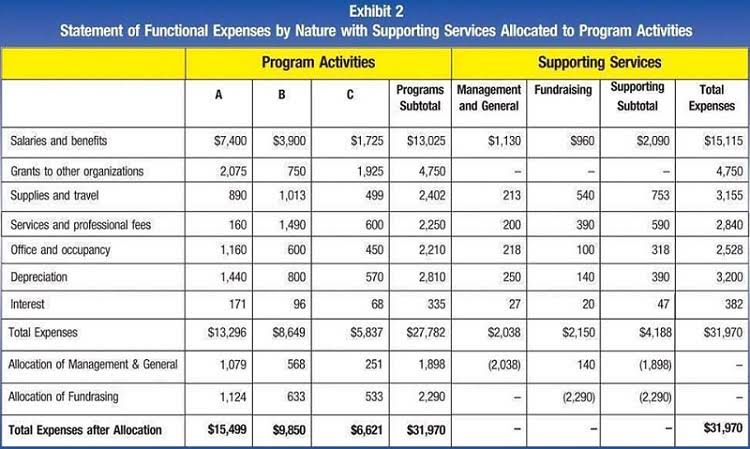8 Types of Accounting: Careers, Degrees, and Salaries
6th Apr 2020 | By Lukasz | Category: Bookkeeping
Because of this, many publicly-traded companies report both GAAP and non-GAAP income. Sometimes this extra data can help the public image of a company or clarify the value of a company’s investments. Create clear processes for recording transactions and events as soon as you start your business.
Auditors and forensic accountants are another important branch of the field. It is essentially a way of adjusting future revenues, expenses, and debts for inflation. This allows others within the business to understand those projections’ potential impacts in relatable terms. In accounting, liquidity describes the relative ease with which an asset can be sold for cash.
The objectives and characteristics of financial reporting
Once you have a set process for documenting and reporting your finances, stick to it. Liabilities are everything that your company owes in the long or short term. Your liabilities could include a credit card balance, payroll, taxes, or a loan. Here are the documents and calculations we recommend picking up, even if you work with a professional, consulting agency, or have hired a certified public accountant (CPA). They provide valuable snapshots and measures of your business performance. Examples of this might include a cash flow statement for operations or an income statement for an upcoming board meeting.

Their primary job is to help clients with their taxes so they can avoid paying too much or too little in federal income or state income taxes. A certified public accountant (CPA) is a type of professional accountant with more training and experience than a typical accountant. In the U.S., licensed CPAs must have earned their designation from the American Institute of Certified Public Accountants (AICPA).
Adhere to all income, employment, and excise taxes.
Income statements are one of three standard financial statements issued by businesses. Businesses and organizations use a system of accounts known as ledgers to record their transactions. The general ledger (GL or G/L) is the master account containing all ledger accounts. Each transaction recorded in a general ledger or one of its sub-accounts is known as a journal entry. An accounting period defines the length of time covered by a financial statement or operation. Examples of commonly used accounting periods include fiscal years, calendar years, and three-month calendar quarters.
It can be more complicated and detailed than private-sector accounting because of the increased amount of regulations and requirements for how money is spent and accounted for in a public setting. One of the reasons you might choose to work in financial accounting is that it is a stable and secure career path with many opportunities for advancement. Discover types of accounting, skills, salaries in different jobs, qualifications, and certifications, as well as the steps to getting started. An enrolled agent (EA) is a finance professional legally permitted to represent people and businesses in Internal Revenue Service (IRS) encounters. EAs must earn licensure from the IRS by passing a three-part exam or accruing direct experience as an IRS employee.
Tax Accounting
With full, consistent, and accurate records, it enables users to assess the performance of a company over a period of time. Whereas you might only periodically consult your accountant, a bookkeeper touches base more frequently and handles daily accounting tasks. Regardless of who you hire, knowing basic accounting principles can help you understand your business better and have more productive conversations with your financial team. After you enter a transaction and categorize it under an account, your accounting software will create a journal entry behind the scenes.


